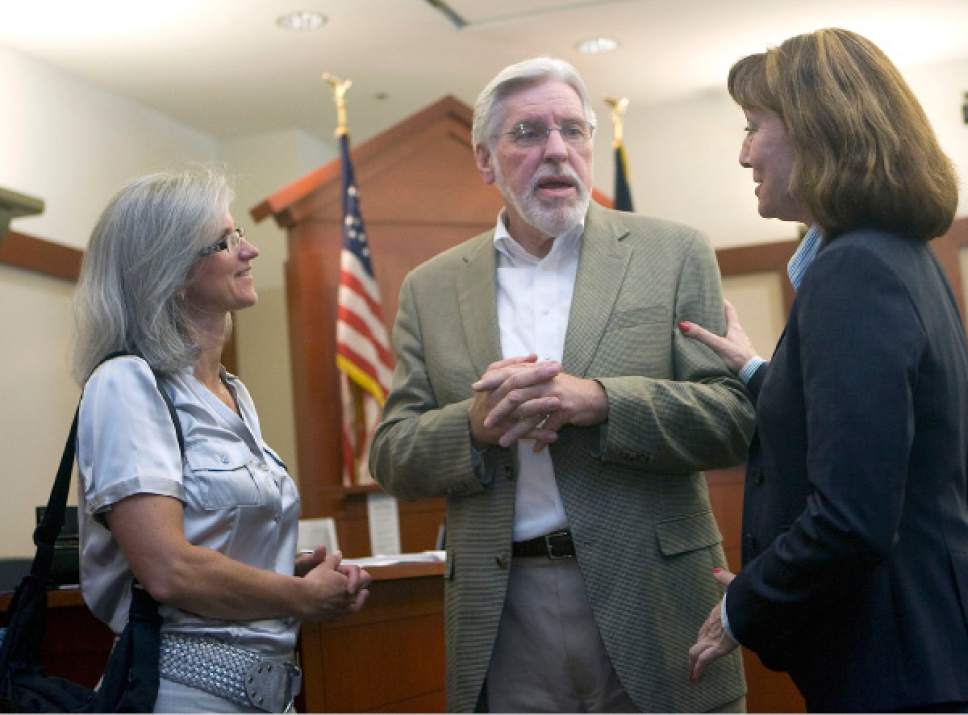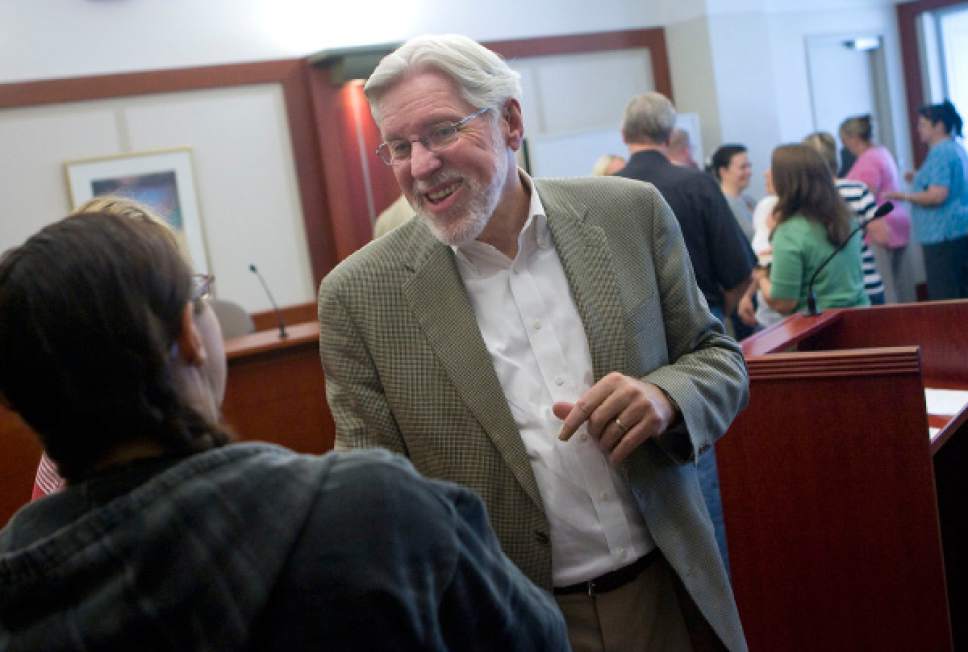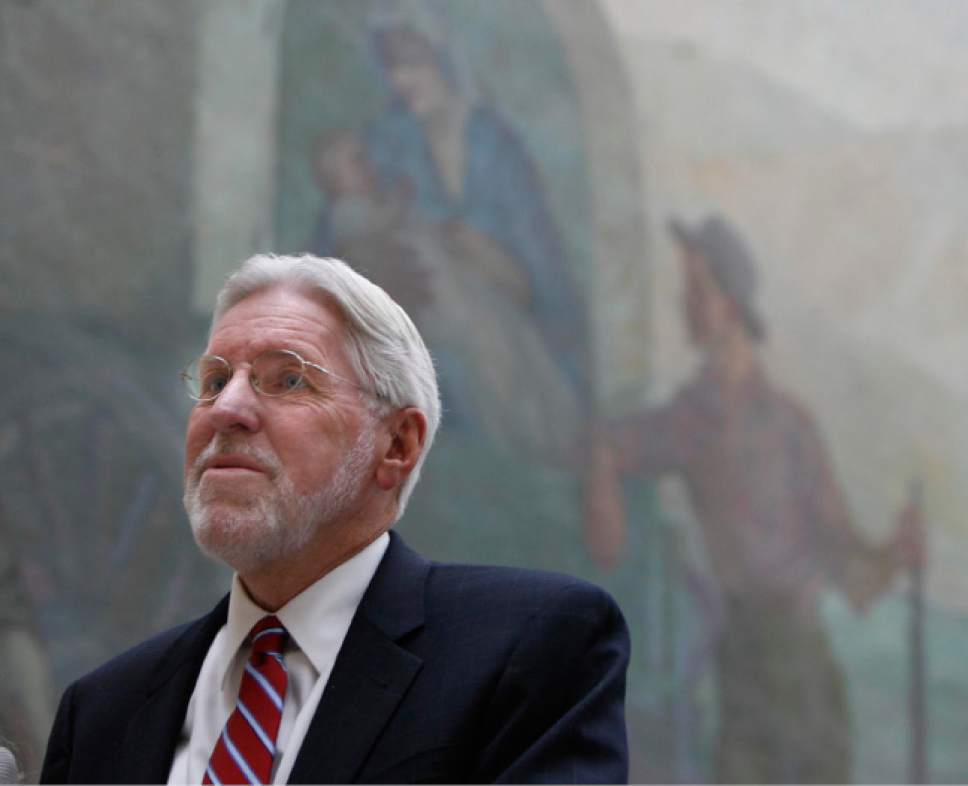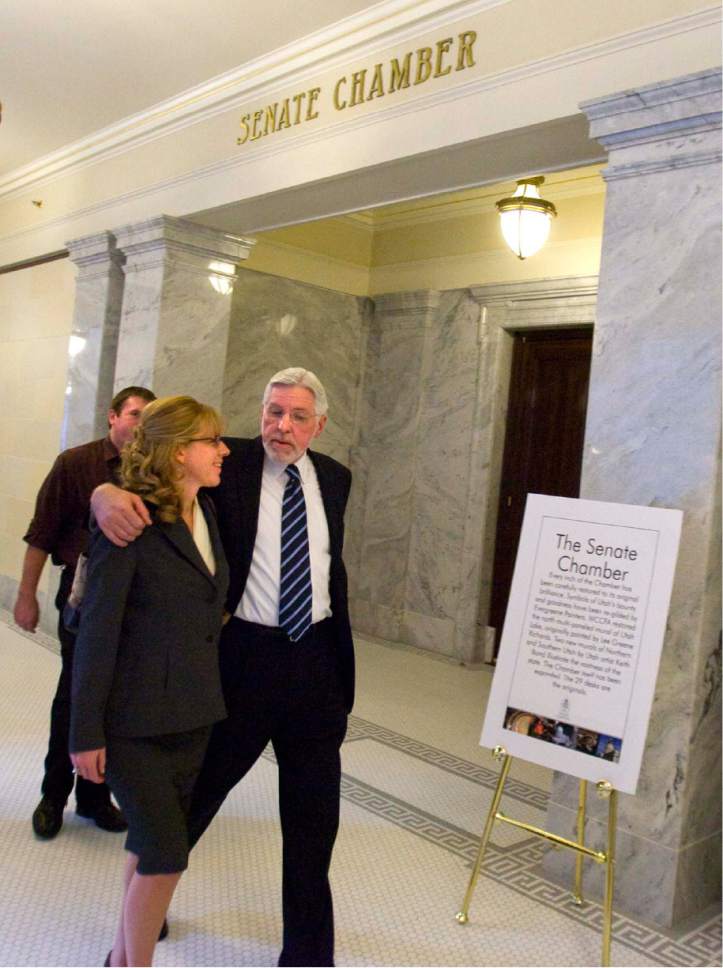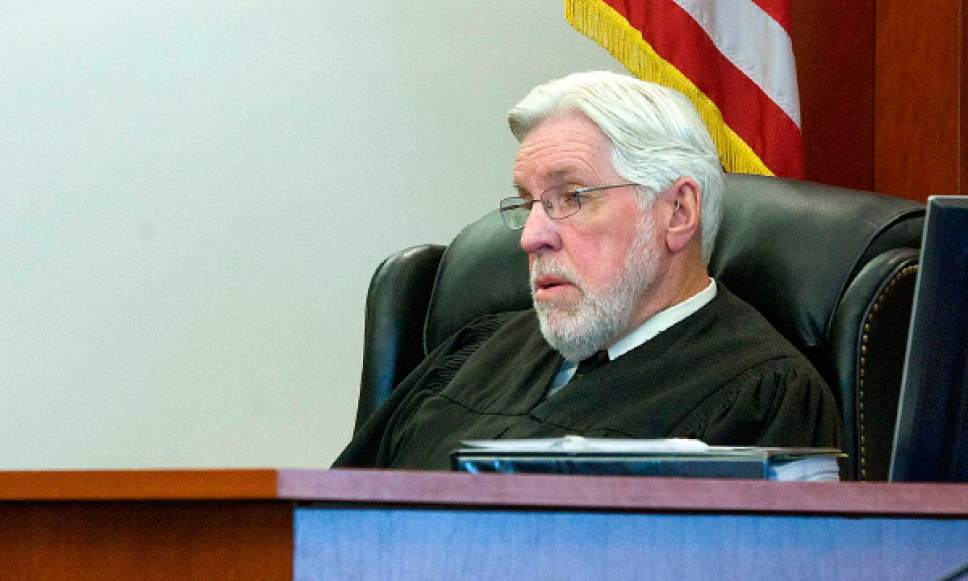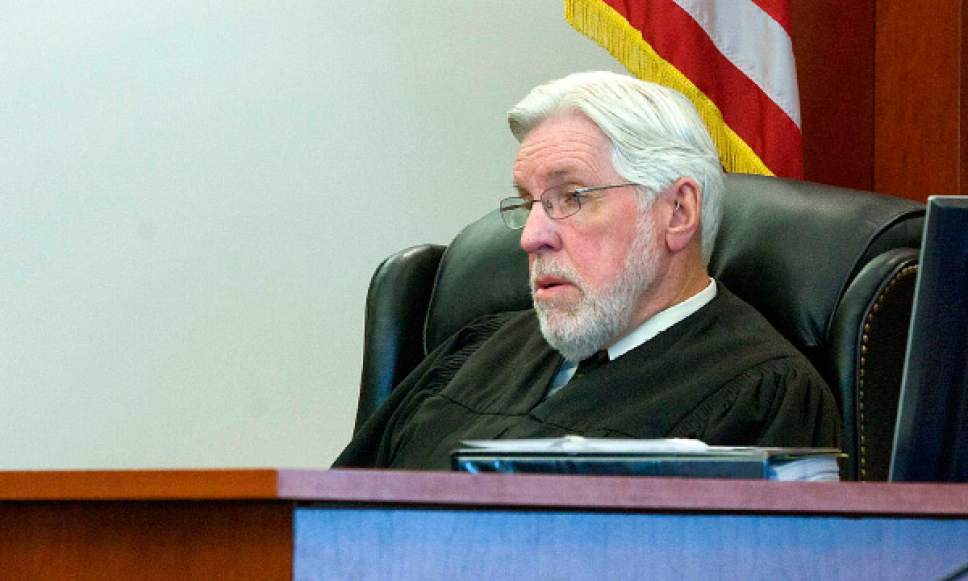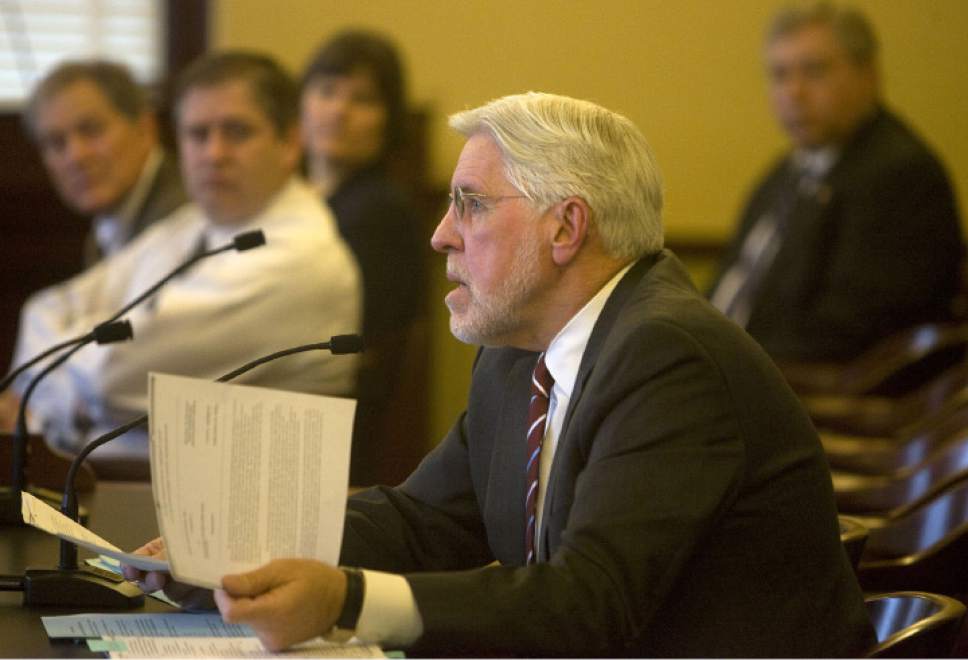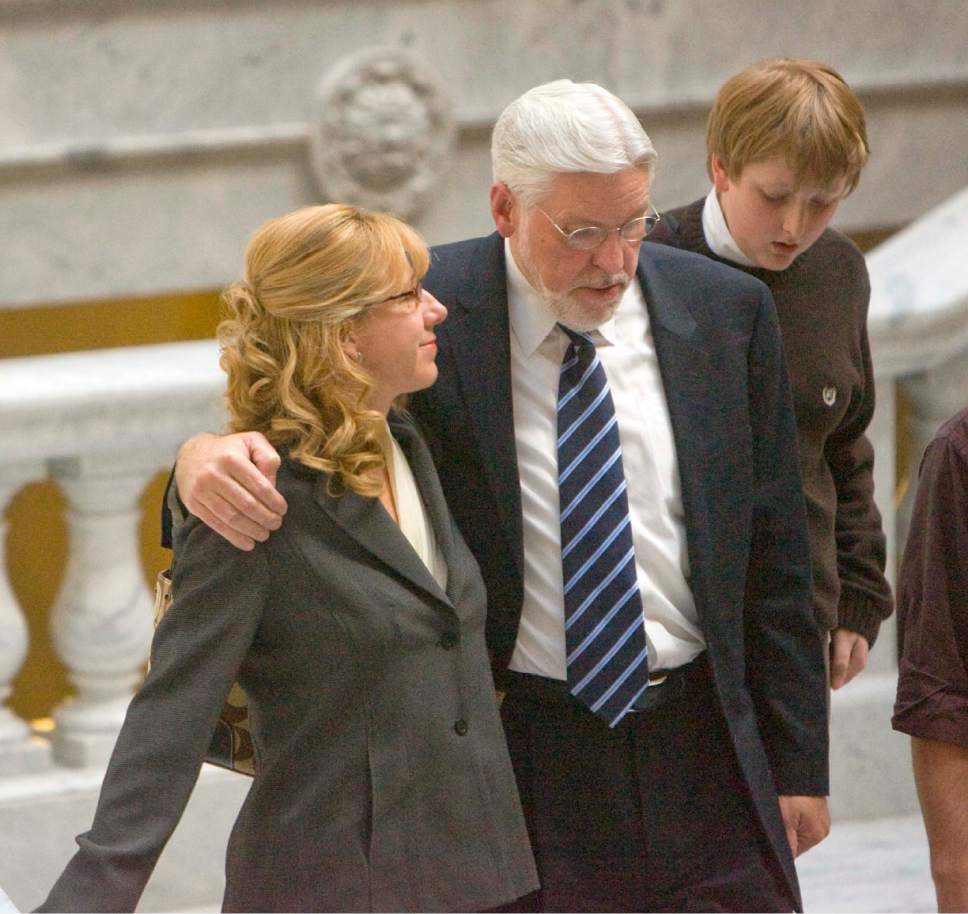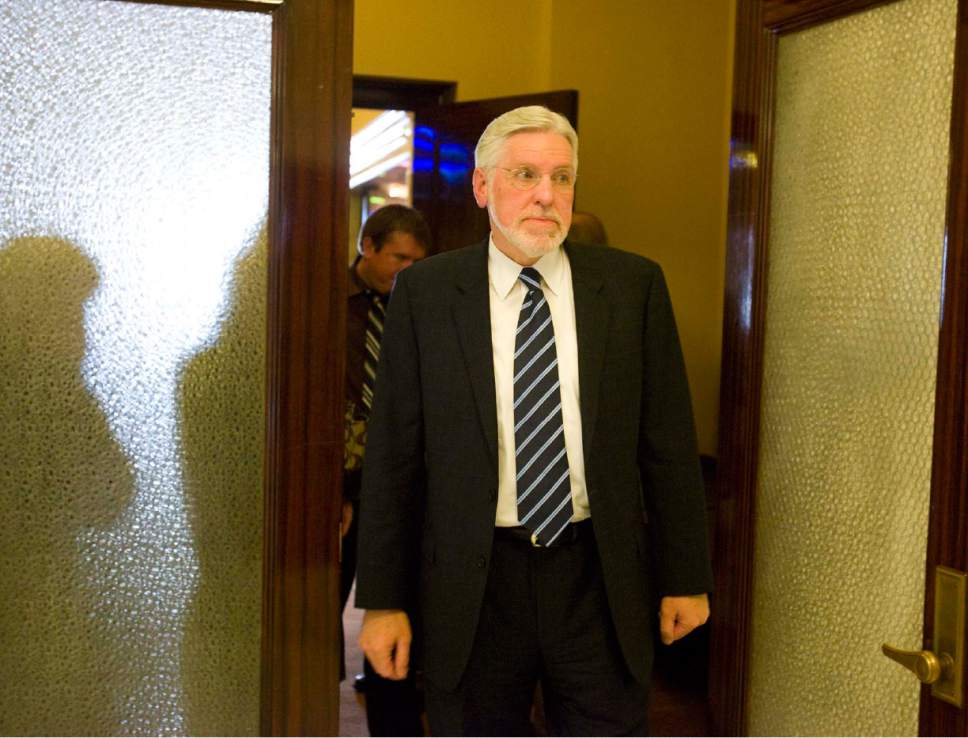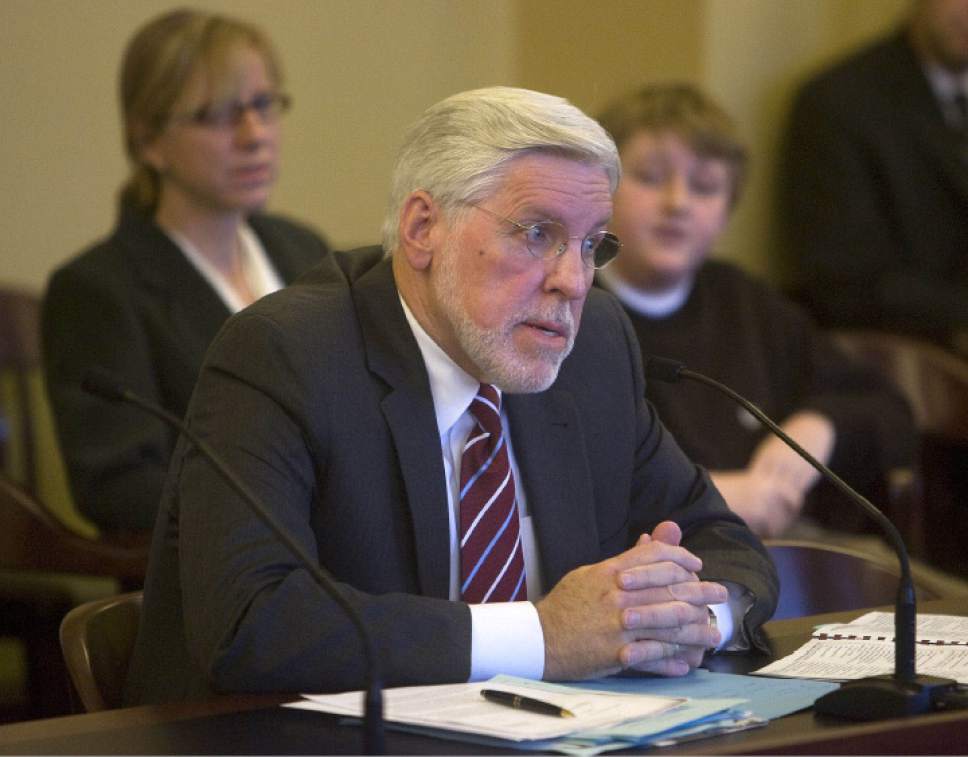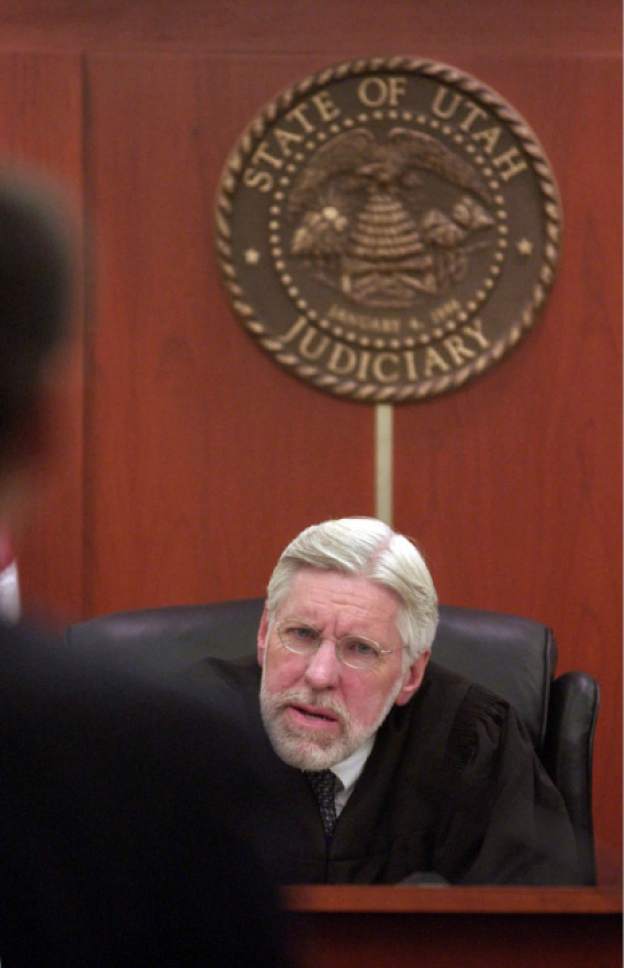This is an archived article that was published on sltrib.com in 2017, and information in the article may be outdated. It is provided only for personal research purposes and may not be reprinted.
Summit County Attorney Robert Hilder — who emigrated to the United States from Australia and later served 16 years as a 3rd District Court judge — died Wednesday from esophageal cancer.
He was 67.
Hilder was diagnosed in early February, and as he began chemotherapy treatments his original prognosis for recovery was positive, according to a news release from Summit County.
Hilder grew up in Sydney, Australia, and was sent at age 11 to a Catholic school where he worked the fields in exchange for his board. He later became an underground miner and joined The Church of Jesus Christ of Latter-day Saints, he told a Utah Senate committee in 2008.
After serving a church mission, Hilder emigrated to the United States, received a scholarship from the University of Utah, became a lawyer and then a judge.
Hilder was appointed to the state's 3rd District Court, which includes Salt Lake, Summit and Tooele Counties, by Gov. Michael O. Leavitt in 1995.
He retired from the bench in 2011, and in 2014 was elected Summit County Attorney.
"Every one respected my dad, and not because he demanded, but just because you couldn't help but respect the man he was, the way he lived his life and the way he treated everyone, whether they were his kids or a felon appearing before him for the fifth time," said Hilder's son, John Hilder.
Robert Hilder believed in second chances, treatment before jail time and that "what defines you is how you handle yourself after you've made a mistake," said his son.
"I have met many people who have appeared before my dad in court and every one of them thanked me for how kind he was to them. They also remark about how personable and funny he was," John Hilder said, adding that his father had a "gift for relating to anyone."
Tough and supportive, Robert Hilder pushed everyone to be better, but "never let you forget how far you've come," said his son, who also called his father intelligent and compassionate.
Defense attorney Greg Skordas said the former judge "was incredibly compassionate with defendants and victims. That compassion he had on the bench, he brought into the prosecuting office."
Skordas said he knew Hilder mostly as a judge. Both prosecutors and defense attorneys liked practicing before Hilder, Skordas said, and law enforcement really liked him.
"I don't know that you'll find anybody that didn't like him," Skordas said. "He was a good man."
Utah Supreme Court Chief Justice Matthew Durrant said of Hilder's passing: "We have lost a valuable colleague and friend to the court. Judge Hilder was a superb jurist. In addition, he made many significant contributions as a leader in our court system. We are deeply grateful for his 16 years of service on the bench."
Widely considered one of the state's best judges, Hilder's time on the bench has its controversial moments, including a contentious confirmation process in 2008 in which Hilder lost his bid for a seat on the state's Court of Appeals.
Some state senators cited concerns about Hilder's demeanor, as well as a 2003 ruling in which Hilder said the University of Utah could enforce its campus ban on firearms — a decision that was unpopular with Utah's strong gun rights lobby.
The Senate voted 16 to 12 against Hilder, marking the first time a judge had been rejected on the Senate floor since 2003, when senators began closely scrutinizing judicial appointees.
Hilder also saw his share of tragedy from the bench. In 2001, Paul Wayment, a 38-year-old Weber County man killed himself after Hilder ordered him to surrender for a 30-day jail term for contributing to his son's death.
The year before, Wayment had gone scouting for deer while leaving his sleeping son, 2-year-old Gage Wayment, alone in the cab of a pickup. He returned to find the boy gone. A six-day search in the snowy mountains east of Coalville ended with discovery of the toddler's body.
After learning of Wayment's suicide, Hilder released a statement, saying, "It is a judge's worst nightmare that his or her actions may lead to unforeseen and tragic human consequences."
Hilder added: "As Paul Wayment's fellow man, I am devastated. I hurt deeply for Mr. Wayment and those who love him. As a father of numerous sons and one daughter, I empathized deeply with Mr. Wayment in his loss of Gage. Having suffered through my father's suicide over twenty years ago, I know the survivors' anguish and I pass no judgment on Mr. Wayment's deeply personal final choice.
"As a judge, however, my sworn duty is to all who appear before me — not just the state, not just the defendant and not just the victim. The reasons for my decision were carefully considered over many days, and I stated those reasons as clearly and as fully as I could from the bench. A record of my reasoning is available."
The judge had said the jail time was intended to help Wayment get past the tragedy.
Years later, Hilder summed up his judicial career by calling it "a wonderful job."
He told The Tribune in 2011 as he discussed his retirement. "I cannot believe I ever got it. I can't believe my life took me to this place. ... It's been an absolute joy, and it's been very difficult in some ways."


